Mati Farms – Sowing A Revolution
In an era when industrialised farming and genetically modified crops are the ruling trends in agriculture, Mati Farms of Odisha is showing the way to what can be achieved through organic agriculture and sustainable farming practices while making money for our farmers. They are paving the way where the farmer and the environment, both can benefit while not stressing the productivity capacity of nature. Mati Farms is an initiative by Sanjog Sahu and they work with smallholder farmers across multiple locations in Odisha where they focus on organic farming and environmentally sustainable practices.
Sanjog grew up in a village near Chilika and he saw first hand the consequences of modernisation on the environment. “One could see the changes in the ecology of both the Chilika lake and the forests nearby. I was raised in a way to be conscious about the natural environment and how we are affecting it. Although as a child I was not much aware about the details and statistics of the negative impact we humans are having on the environment, but by the time I finished my 12th, I could clearly see the change happening around me,” said Sanjog.
This prompted him to pursue law because he deeply felt that the best way to protect the environment was by making stricter laws and policies. So he decided to study law with a focus on the environment, in Pune and completed his graduate programme. Back in the mid-2000s there was not much scope to practice environmental law in India. For the next few years he started working with NGOs on implementing the Forest Rights Act 2006.
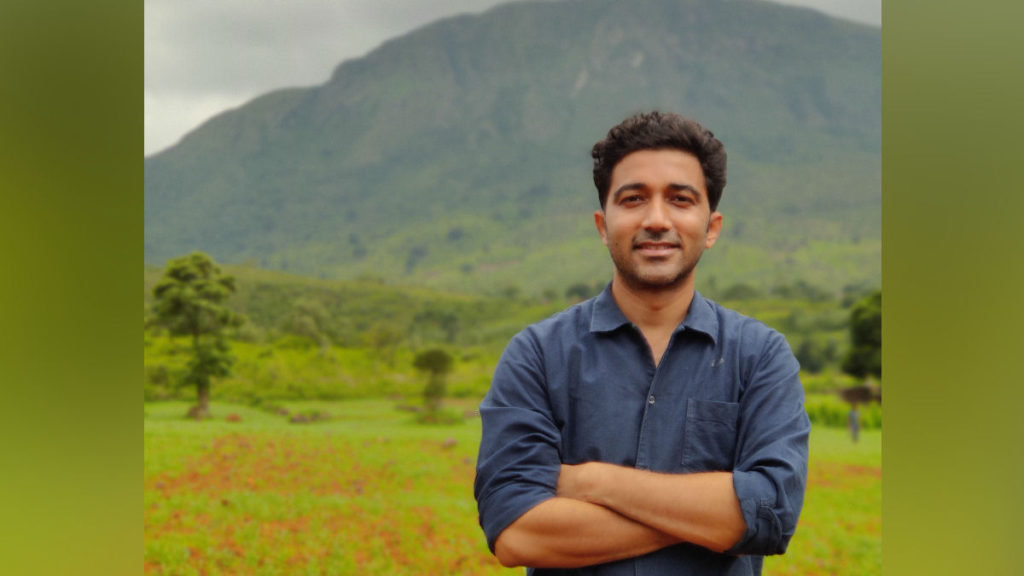
In 2011 Sanjog was selected to be a Young India Fellow (YIF) at Ashoka University which further prepared him for a PhD. He pursued a PhD in Ecological Anthropology at the School of Anthropology of the University of Arizona. There he was also a research assistant at the School’s Complexity Center under Prof. J. Stephen Lansing. His experience as a community forestry researcher and YIF were both instrumental in him opting for a PhD.
“I had many questions on my mind for which I was looking for answers and I used to write to professors and academicians about my queries. I was in Arizona from 2012-16. In 2016 I came to Odisha and did my field research in Malkangiri. The thesis topic of my research was about the relationship between farming and biodiversity, especially how agriculture affects biodiversity,” he informed about how his study path guided him towards farming.
Because of an emphasis on traditional farming techniques that date back thousands of years in Koraput, the region was declared a ‘Globally Important Agricultural Heritage Systems’ site (GIAHS) in 2012 which is a recognition of its traditional farming practices and how beneficial they are to the environment. “What I found out during my research is that traditional agricultural practices are also a major driver of environmental change along with others. This is especially true in the case of vegetable farmers because there are no fair price deals or a minimum sale price to break-even. This leaves them with two choices when prices fall and these are either to increase the output by using synthetic fertilisers or increase the farming land by cutting down forests,” explained Sanjog about the dilemma of farmers.
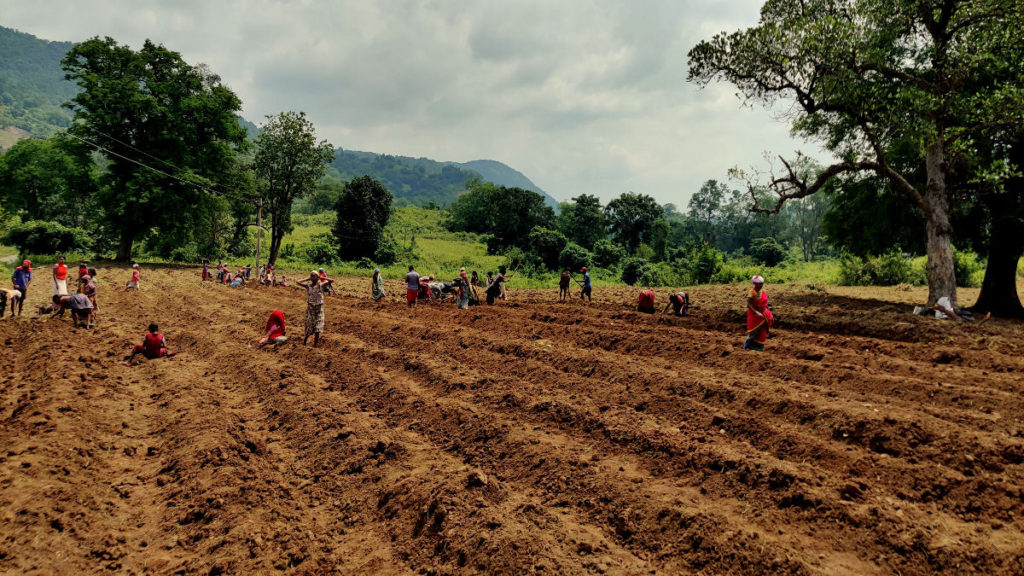
Sanjog wanted to do something that is meaningful, protects the environment and is sustainable. That is the experiment that Mati Farms is. They started out with the goal of profitable smallholder farming without externalising the environmental cost of their operations. “I wanted to provide profits to the farmers while not degrading the environment or rather benefiting the environment. That model is still not out there and technology is not the only solution to it. It is not an easy thing and needs a sophisticated model. So we started Mati Farms in 2016. That is the core vision of Mati Farms although the nature of the work we do has evolved,” explained Sanjog about the inception of Mati Farms.
For the first two years Mati Farms tried to establish a model which will be beneficial to the farmers, the environment and Mati Farms. “I wanted to tap into Odisha’s highlands, the Eastern Ghats. Farmers here with small patches of land opt for vegetable farming as it is the most profitable. One of the best things about our highland areas is the climate which is comparatively cooler than the rest of the State. This makes it suitable to grow vegetables for 8-9 months of a year. The cooler climate means the seasons for vegetable cultivation can be extended,” said Sanjog about the viability of vegetable farming in the highlands.
He added, “While the climate is a boon for the farmers, they needed a fresh approach to increase profits. During my Arizona days we had created some technological and ecological designs for high-density high-rotational farming. As the climate in Koraput is perfect for vegetable farming we decided to start with exotic vegetables whose market value is higher than regular vegetables and hence have a better return on investment. If a farmer cultivates cherry tomatoes instead of regular tomatoes then he or she is not changing the ecological balance of the area as the same species is being cultivated while increasing the profits.”

As some issues were being solved, others were raising their heads. Talking about how the lack of demand for exotic vegetables in the market was a challenge for Mati Farms, Sanjog said, “We had success in the first two years from the production point of view. However, the lack of demand in the market was proving to be a hindrance to our endeavours. Consumption of exotic vegetables in Odisha is very low. Only a handful of farmers can satisfy the entire market demand of Bhubaneswar. We wanted to bring about a social impact as many farmers across the State are facing the same problems of uncertainty of prices.”
While Sanjog realised that production was not a big problem, he also realised that Mati Farms needed to add value to the produce. “When the prices fall in the market the farmers suffer huge losses because they don’t have cold storage facilities where they can store the produce till the prices rise again. The farmers face a lot of post harvest loss because of this. If they had the basic advantages of cold storage facilities or vegetable processing plants they might be better off. We realised that the farmers were already very good at what they were doing. Introducing new crops has value but that might not always be the solution. We needed to do more,” explained Sanjog.
“Even if we sell the produce at a wholesale price in bigger metro cities, we will still make some profits simply because the demand is high but the margins will come down because of the added logistics cost. We realised that the only solution to all of this if we wanted to scale up while capitalising on the inherent strength of the farmers was food processing. Even though I don’t have a background in food processing, when we realised that it is the only way to help the farmers here, two years ago we decided to pivot towards it, vegetable processing to be specific,” Sanjog shared about the next step of evolution for Mati Farms..
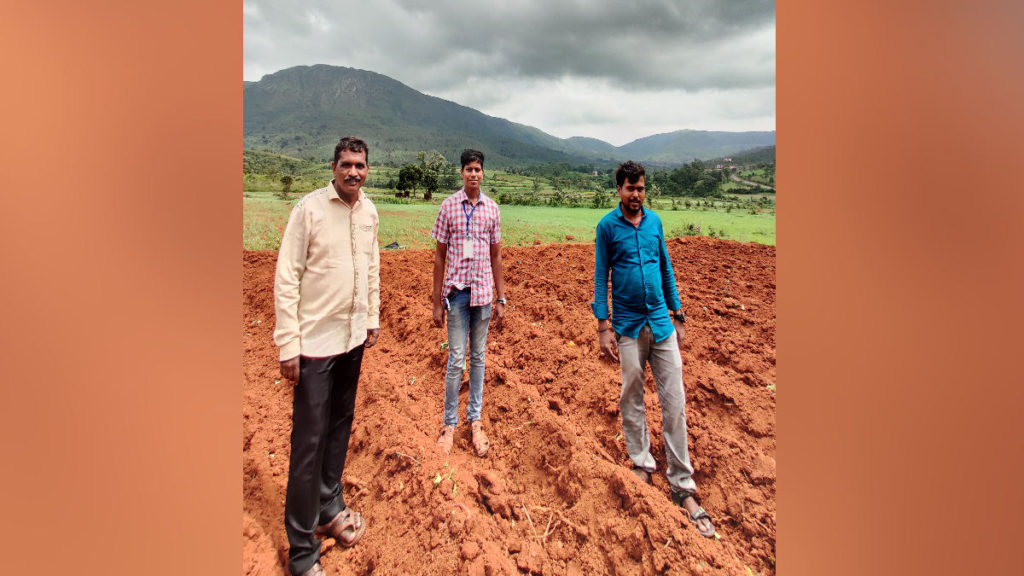
When it comes to the farming of vegetables Odisha is one of the highest per capita producers in the country whereas on the population index it is not among the top 10 States. Majority of the vegetable cultivation happens in the tribal areas. Because of the progressive interventions of the Government of Odisha over the past few decades, farmers here have gone beyond cultivating cereals and millets and see vegetables as lucrative enough. However, the big challenge is the lack of vegetable processing plants in the State. This was a major motivation for Mati Farms to enter into the domain of vegetable processing.
Mati Farm set up a vegetable processing plant in 2020 as a pilot project in Jagatpur near Cuttack. Sanjog firmly believed that this was the right direction for Mati Farms. Because the idea was very well planned and focussed strongly on fundamentals, Mati Farms was incubated at KIIT Technology Business Incubator (KIIT TBI) who helped them raise funds. Villgro, a Chennai based social enterprise incubator provided the seed capital that was instrumental in setting up the pilot plant.
Mati Farms is encouraging farmers to grow crops that can be processed and also they are focussing on those vegetables and fruits that grow well in Odisha than anywhere else in India Recently they were in national limelight for growing purple sweet potatoes which they produced for an extended season. This was a first in Odisha and India as nobody has been able to grow them in May. Following this, their scale of operation has gone up. From partnering with around 20 farmers until March this year, they will now be working with more than 200 farmers by the end of 2021.
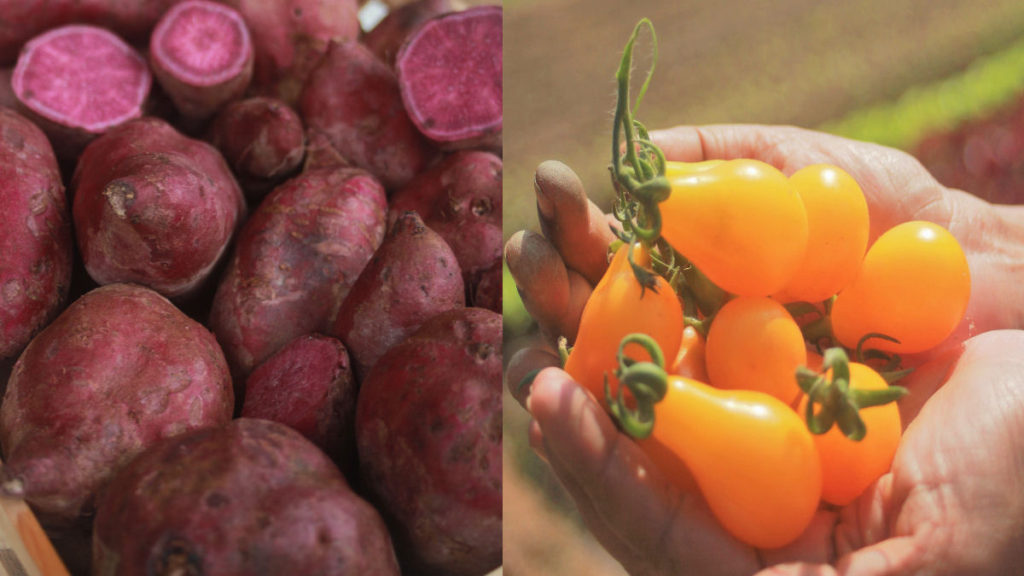
Government organisations and local NGOs have realised the potential of Mati Farms and have come forward to work with them to provide a better future for Odisha’s farmers. The Central Tuber Crops Research Institute in Bhubaneswar (ICAR-CTCRI) is providing Mati Farms with seedling material and technical assistance. “Dr. Nedunchezhiyan Maniyam, Principal Scientist at ICAR-CTCRI has been a great mentor, and his wealth of experience on and off the field in growing sweet potatoes has helped us in streamlining our farm-level operations. Organisations such as Pradan (Keonjhar), KRPSS (Keonjhar) and Nirman (Kandhamal) are also helping us grow and nurture our farmer network,” informed Sanjog about how Mati Farms is growing together with scientists and farmers.
“This year the market demand for sweet potatoes has suddenly become so high that we started receiving many inquiries. Now we have forward contracts with a number of large processor companies. This will help us in working directly with more than 200 farmers. Since we have a very small core team, we are increasingly working with local partners and adopting technology like building our own app to make our backend sourcing more efficient. Right now we are directly handling our clusters in Gajapati, Koraput and Keonjhar. Enthusiastic support from the district administration in Keonjhar headed by Ashish Thakare has helped us expand our footprint in a multi-stakeholder environment there. Down south in Koraput, the district administration led by collector Abdaal Akhtar and Pottangi BDO Vedbhushan has been crucial in enabling us to work with small and marginal farmers in the high-altitude region of Koraput, which is probably the best place to grow sweet potatoes year-round in Odisha. In other places where farmers are working directly with ICAR-CTCRI, we are trying to reach out to them and ink out buyback agreements,” explained Sanjog about what is keeping Mati Farms busy at the moment.
Mati Farms’ modus operandi for expansion is to have a few crops for which they can optimise the production depending on what the farmer wants to grow. Apart from providing seeds, knowledge and other inputs they also give the farmers buyback assurance. Mati Farms is trying to be as flexible as they can be by streamlining the backend so that they can come out with a line of products that are made in Odisha, made for India and sourced proudly from Odisha’s farmers.
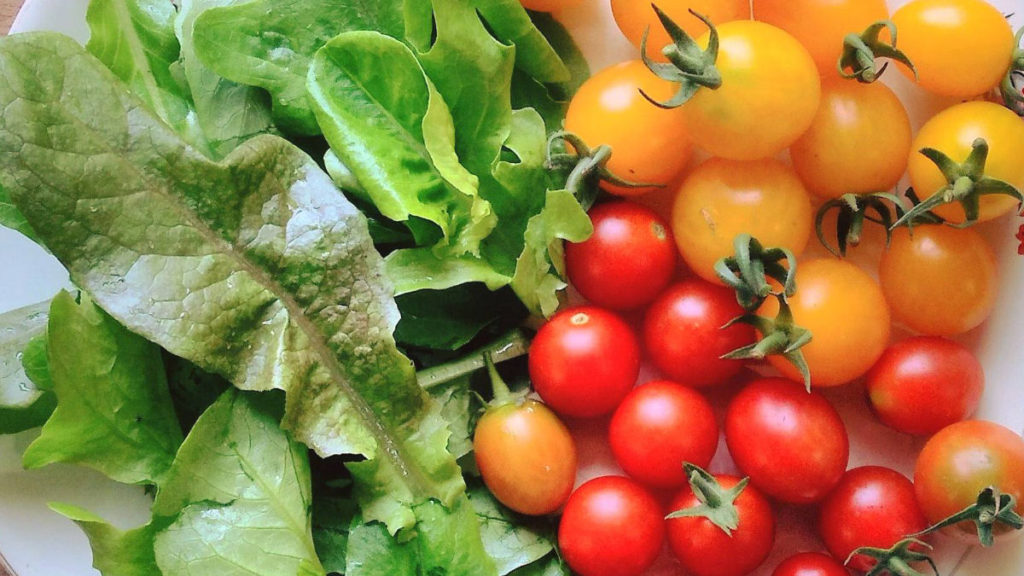
The introduction of new crops to a geographical area raises a lot of pertinent questions like their impact on the ecology and climate resilience properties in a rapidly degrading global climate system. Explaining how Mati Farms is able to address these concerns, Sanjog said, “The sweet potato that we are introducing is not exotic. It is a native crop and the fortified variety is locally developed for Odisha and India by ICAR-CTCRI. The sweet potato is a climate resilient crop because the consumption of water is very less compared to many other crops that we grow here.”
“That is the same reason why the government is promoting millets these days. The fortified sweet potato is not just good for the environment but it also brings in a nutritional diversity which is very low in the tribal areas. So these crops not just have a global market and hence can be scaled up rapidly but they are also good for the tribal population to consume for themselves. Hence they are good from the point of food security,” he said.
The growth of Mati Farms has happened very organically over the last five years which is a testament to the trust and success of their model that is helping the farmers to not just grow crops but to grow themselves. “Three years ago the Tata Steel Foundation had invited me to conduct a skill development workshop for a group of farmers from Jajpur. After a two year gap some farmers from the workshop approached us last year as they wanted to do something new. They not only grew sweet potatoes but also other varieties of vegetables for us. They were happy with the output and made some good money. Inspired by them, other farmers from Jajpur were motivated to work for us. That is how we have been growing; slowly and steadily,” said Sanjog.
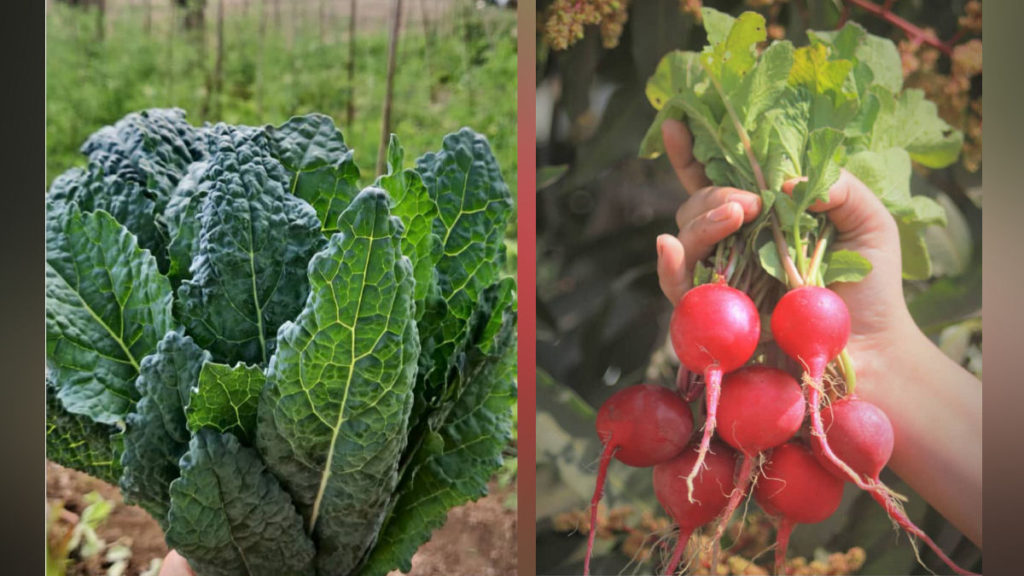
Over the next few months Mati Farms is hoping to launch a slew of products by optimising their production capacity by intelligent use of technology, local knowledge and sound ecological design. Mati Farms is changing the agricultural scene of Odisha with its focus on empowering farmers by helping them make a better living while benefiting the environment in more ways than one. Currently they are growing biofortified sweet potatoes, heirloom tomatoes and chillies in different parts of Odisha. With their new approach to farming Mati Farms is sowing seeds of a revolution that is beneficial to both humans and nature.
Author: Debi prasad sahu
Debi is an auteur of minimalism and a connoisseur of world movies and music. He loves to go on gastronomic adventures and crack PJs. He writes poetry and is a hippie soul.
Read more from author


.jpg)